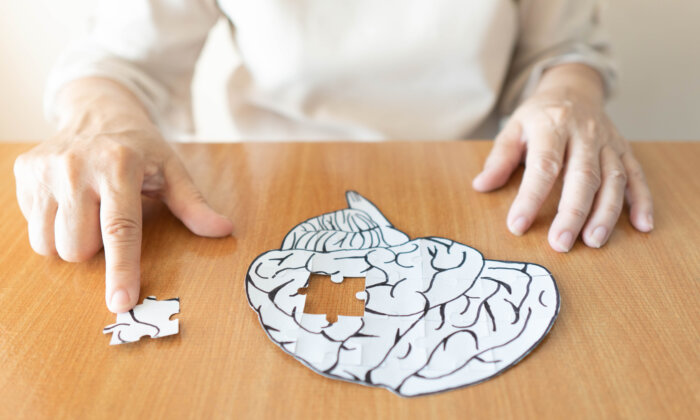Uncovering the Link Between Alzheimer’s and the Immune System: A Breakthrough Discovery
New discoveries are enhancing scientists’ comprehension of the immune system functions in individuals with Alzheimer’s disease.
This crucial component is known as the Th1/Th2 ratio.
The study’s authors made several significant observations.
Firstly, they noted that individuals with moderate-to-severe Alzheimer’s disease exhibited remarkably high Th1/Th2 ratios (Th1 dominant), a phenomenon not previously observed in this patient group.
Secondly, the Alzheimer’s patients’ Th1/Th2 ratios were compared to those of healthy adults and were found to be statistically significantly higher across all six measured values.
The Alzheimer’s group was provided with a dietary supplement containing a natural aloe polymannose multinutrient complex (APMC) for a duration of twelve months, resulting in an overall rebalancing of the Th1/Th2 ratio.
Ultimately, this rebalancing was correlated with enhanced cognition at the study’s conclusion.
What Is the Th1/Th2 Ratio?
The “Th” in Th1 and Th2 refers to T Helper cells—a type of immune cell crucial for a healthy immune system. Th1 and Th2 cells operate via distinct immune pathways—each generating a unique immune response.
The Th1 pathway influences innate immunity—the body’s initial defense line. Th2 influences adaptive immunity, which generates antibodies tailored to viruses, bacteria, or toxins encountered, thereby strengthening over time.
The Th1 pathway tends to produce pro-inflammatory responses, essential for combatting intracellular pathogens like viruses and bacteria. However, prolonged activity of these defenses after the threat has passed can lead to various diseases and autoimmune conditions. On the other hand, the Th2 pathway inhibits inflammation and exerts a protective effect, fostering antibody production to counter extracellular threats like bacteria, allergens, parasites, and toxins.
A balance between these two pathways (Th1 and Th2) is deemed crucial for a healthy immune system.
Furthermore, Th1 and Th2 produce cytokines—protein messengers that help regulate inflammation throughout the body. The activation of the Th1 or Th2 pathway is determined based on the presence of specific cytokines.
As per the study, “Th1/Th2 cytokines serve as valuable benchmarks for patient evaluation. The production of Th1 and Th2 cytokines significantly influences T cell-mediated immune reactions, and maintaining their balance is associated with the prevention of infectious and allergic diseases, immune-related disorders, and the development of cancers.” (Lewis, 2024, p. 1724).
Th1/Th2 Imbalance in Other Conditions
An imbalance in the Th1/Th2 ratio has been observed in other conditions, particularly those demonstrating high levels of inflammation such as multiple sclerosis and cancer.
The study authors identified an imbalance in the Th1/Th2 ratios in the Alzheimer’s patients in their study, with notably elevated levels of Th1—which is the pathway linked with inflammation—particularly when compared to the healthy adults.
Effects of the Supplement on Th1/Th2 Ratios and Cognition
The study examined two distinct groups—one comprising Alzheimer’s patients and the other consisting of healthy adults.
The first group included thirty-four patients averaging just under 80 years of age. Each patient had been diagnosed with moderate-to-severe Alzheimer’s for at least a year, with an average disease duration of three years and various comorbidities.
The second group comprised twenty healthy adults who partook in another study. These participants exhibited a similar evaluation of their immune system function to that of the Alzheimer’s patients. They did not have obesity, known heart, liver, or kidney diseases, Type 2 diabetes, active infections, cancer, or mental illness.
The Alzheimer’s study participants received the APMC dietary supplement containing polysaccharides, antioxidants, omega-3 fatty acids, and other nutrients. Each participant consumed 2.5 grams, or one teaspoon, four times daily for twelve months.
The addition of the dietary supplement was the sole change in the lifestyles of the Alzheimer’s patients throughout the study, and they continued their prescribed medications, diet, as well as social and physical activities.
The study authors highlighted “remarkably high” ratios in all six Th1/Th2 values in the Alzheimer’s patients compared to the healthy adults in the study, indicating a Th1 dominant immune profile in their Alzheimer’s patient sample.
John E. Lewis, the lead author of the study, holds a doctoral degree in educational and psychological studies from the University of Miami and has dedicated his career to researching the effects of nutrition on various aspects of human health—particularly the brain and immune system. He explained to The Epoch Times the concept of the Th1/Th2 paradigm, emphasizing the necessity of a balanced immune system. This theory emerged in the mid-1980s to aid in understanding challenges related to HIV and is now used to comprehend other diseases and disorders.
“Despite criticism over simplifying immune function, the Th1/Th2 ratios offer valuable information. These ratios help us compare the pro- and anti-inflammatory components of the immune system, enhancing our understanding of the clinical aspects of diseases,” he stated.
Upon taking the APMC supplement, Alzheimer’s patients exhibited a rebalancing in five of the six Th1/Th2 ratios towards a Th2 or anti-inflammatory profile. These positive changes additionally correlated with cognitive enhancements assessed multiple times throughout the twelve-month study period.
Mr. Lewis highlighted the importance of this rebalancing in the Alzheimer’s group:
“Our study not only revealed the Th1/Th2 ratios in Alzheimer’s patients for the first time but also demonstrated the effectiveness of the APMC dietary supplement in reducing five of the six ratios towards more balanced values. Their Th1 dominant values offer new insights into the role of inflammation in this devastating disease. The APMC dietary supplement showed efficacy in shifting these ratios and led to a connection between rebalanced Th1/Th2 ratios and improved cognitive function.”
Dr. Judi Woolger, an internal medicine specialist and chief medical officer at the Agatston Center for Preventive Medicine in Miami Beach Florida, serves as a co-author of the study. She underlined the significance of the findings for Alzheimer’s patients:
“Our research demonstrates once again the interplay between major organ systems, in this case, the correlation between enhanced cognitive function and rebalanced immune system function, is pivotal to comprehending the clinical context of a disease currently associated with considerable ambiguity concerning its cause and treatment. By incorporating the APMC dietary supplement, we illustrated that we can contribute to enhancing the lives of individuals desperately in need of assistance.”
The Role of Inflammation and Immune Dysregulation
One of the factors contributing to an imbalanced immune system is uncontrolled, chronic inflammation. Following an infection or injury, the body initiates short-term inflammation as an initial immune response—a necessary process for healing and survival. Once the threat subsides, the inflammatory response should cease and the body should return to a state of equilibrium.
Dr. Reg McDaniel, an anatomical and clinical pathologist, researcher, and co-author of the study, explained the impact of the dietary supplement on the immune system:
“The active ingredient in the APMC supplement we provided to the Alzheimer’s patients achieved this. It helped bring the immune system, or the Th1 and Th2, back to balance or homeostasis.”
Failure of the immune system to function correctly and turn off inflammation can result in uncontrolled inflammatory responses leading to a cascade of health issues, including autoimmune diseases.
Though Alzheimer’s disease represents an extreme case of persistent, uncontrolled inflammation, external factors can prevent inflammatory responses from spiraling out of control.
According to Mr. Lewis:
“These problems are exacerbated by poor nutrition, sedentary lifestyles, smoking, substance abuse, insomnia, stress, and other consequences of modern-day living. Dysregulated immune function ultimately leaves us more susceptible to diseases, as the body’s primary defense mechanism will not operate optimally. The APMC dietary supplement, as observed in this study, serves as a valuable tool to calm down chronic inflammation in a patient group afflicted with a disease acknowledged to have a strong inflammatory origin.”





